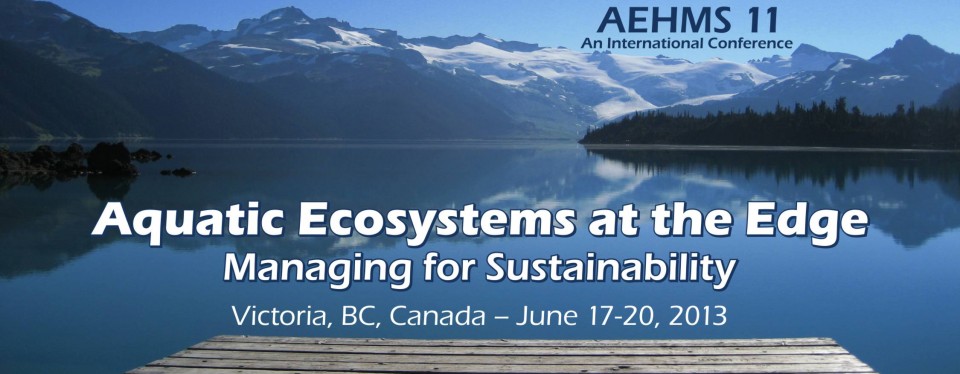AEHMS conferences focus on aquatic ecosystems, their health and their management. The current suggested themes for the AEHMS 11 conference are:
1. Health and Status of Marine Ecosystems
- Status of fish, fisheries, and coral reefs
- New monitoring tools, ocean observatories
- Oceans 2 Network-Enabled Platforms Project, autonomous nodes in circumpolar networks
- Arctic ecosystems including impacts of climate change, methane escape, permafrost, impacts of resource development
- Acidification, phosphorus, dead zones, health of corals, ocean ecosystems, deep sea
2. Health and Status of Freshwater Ecosystems
- Great lakes of the world: North American, South American, European, African, etc.
- Northern / arctic lakes of Canada: Great Slave, Great Bear, Winnipeg, Athabasca, Reindeer and others
- Changing hydrological cycles, migration of water resources
- Watershed management
- Water quality monitoring and risk management
- Water rights, access, privatization
- Significance of long-term data sets (Great Lakes, ELA, etc.)
3. Impacts of Invasive species on marine and freshwater ecosystems
- Methods of introduction
- Prevention, monitoring, and treatment techniques
- Impacts to native species and fisheries
4. Coastal habitat and management (marine/freshwater)
- Man made coastal perturbations
- Debris fields and ocean currents
- Debris from the Tōhoku earthquake/tsunami and Fukushima nuclear disaster
- Dead zones; phosphorus discharge
- Degradation of coastal habitat, loss of biodiversity
- Regulating development to control habitat loss—Green Shores, etc.
5. Shellfish and Aquaculture: Management and new developments
- Acidification
- Virus outbreaks
- New technologies, closed containment
6. Indigenous peoples: Fisheries management and resource development
- Global covenants, regional implementation in fisheries agreements
- Freshwater on reserves
- Impacts of tar sands, mining and development
- Seeking food security; indigenous communities and traditional foods
- Rights of indigenous peoples; artisanal resource development versus the globalized world
7. Tools, Toys and Techniques
- Emerging technology
- Zooniverse
- Whale song
- Digital Fishers
- Fluorometers, LOPCs, etc.
8. Youth session, science education and outreach
- Many perspectives of youth; many ways to see water
- Youth initiatives
- Citizen science, outreach, engagement
- Social networking driving youthful activism
9. Governance and management; transboundary issues, sustainability and stewardship
- Intarnational agreements, conventions, and treaties
- Participatory mechanisms, coastal and marine spatial planning
- Recognizing and building on traditional knowledge; validating academic science
- Cross-scale linkages and institutions
- Community mapping and coastal communities—natural capital and access to resources
- Canadian developments—fisheries act, environmental monitoring and review, de-emphasis of environmental sciences
- Salish Sea (Marine Water Quality Panel, Victoria Sewage treatment)
- Big Eddy, Pacific North Coast Integrated Management Area (PNCIMA)
- Bay of Fundy, Gulf of Maine Council
- Wadden Sea, Gulf of Thailand, South China Sea
- Interpretation, perspectives, practice
- Implementing global covenants on the ground—“lived rights”

